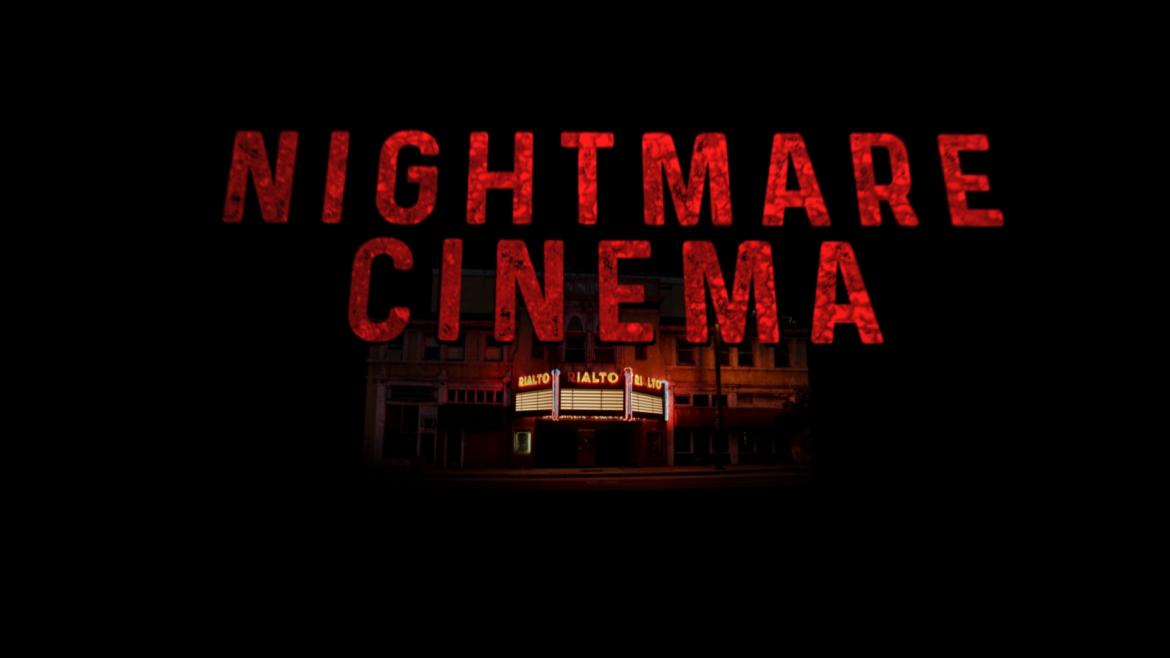
Nightmare Cinema (Movie Review)
Nightmare Cinema is a new anthology film spearheaded by Mick Garris, the horror architect behind television anthology series “Masters of Horror” and “Fear Itself” in the early 2000's. The intent of Nightmare Cinema is to adopt that format with a focus on international voices. The film presents shorts by filmmakers from Argentia, Japan, the UK, and America. As a whole the anthology fits together pretty well, with the wrap around segment highlighting the importance of a diverse horror landscape. Each segment is centred around either an inversion, or a twist in narrative so we'll opt out of a full plot synopsis. Needless to say this is a worthy addition to the anthology sub-genre.
Thematically the film feels like a more satirical version of John Carpenter’s In the Mouth of Madness, or his “Masters of Horror” episode Cigarette Burns. Indeed, Nightmare Cinema is focused on the madness of art and the ability for a film to gain substance, and power from capturing a certain darkness. Each short begins with a character entering an abandoned movie theatre and becoming a part of the movie onscreen. As such the segments are of drastically different genres and tones that play well off the wrap-around narrative. In that segment we are eventually introduced to Mickey Rourke who plays the Projectionist, the Crypt Keeper of this intended franchise. The Projectionist is captivating whenever he appears on screen. Rourke imbues his a character with a deeper history from his very first moments on screen. In the long history of wrap-around segments Nightmare Cinema is near the top. The mise-en-scene is outstanding, effectively utilizing the movie theatre location to create a broader statement. Little details like the reliance on film as opposed to digital marks the death of a particular era of filmmaking, emphasizing the decaying atmosphere and the reemergence of a haunted past.
The shorts themselves however are a bit of a mixed bag. They range from amazing such as David Slade's segment, to the okay by Joe Dante. It's worth noting there is not a truly bad segment of the bunch, and while I was not a huge fan of Joe Dante's it is mostly due to the ending feeling a tad mean spirited, not because it is an example of abhorrent filmmaking.
Alejandro Brugués opens with the first short, and it really gets the ball rolling. A slasher throwback that is whip smart, and devilishly comic. Brugués knows the slasher genre incredibly well, and he clearly enjoys playing around within it. Slade's segment is by far the best of the bunch, as it delivers an amazing setup, with outstanding visuals, and a great ending which subverts expectations rather well. Garris offers up a truly fascinating entry in a story which was originally intended to be an episode of the third season of "Masters of Horror". The segment works to subvert the tired ideas of a ghost story, and introduces an added level of mistrust in the care of a parental figure. Ryûhei Kitamura’s piece is easily the wackiest of the bunch, and if you've seen any of his work you'll have a good idea what to expect. You'll be left speechless as some of the cinematic norms you've come to know are gleefully destroyed in Kitamura's sure to be controversial entry.
As a whole Nightmare Cinema is a good time at the theatres. It has some truly captivating segments, which will stick with you long after the film ends. It is not the greatest anthology of all

